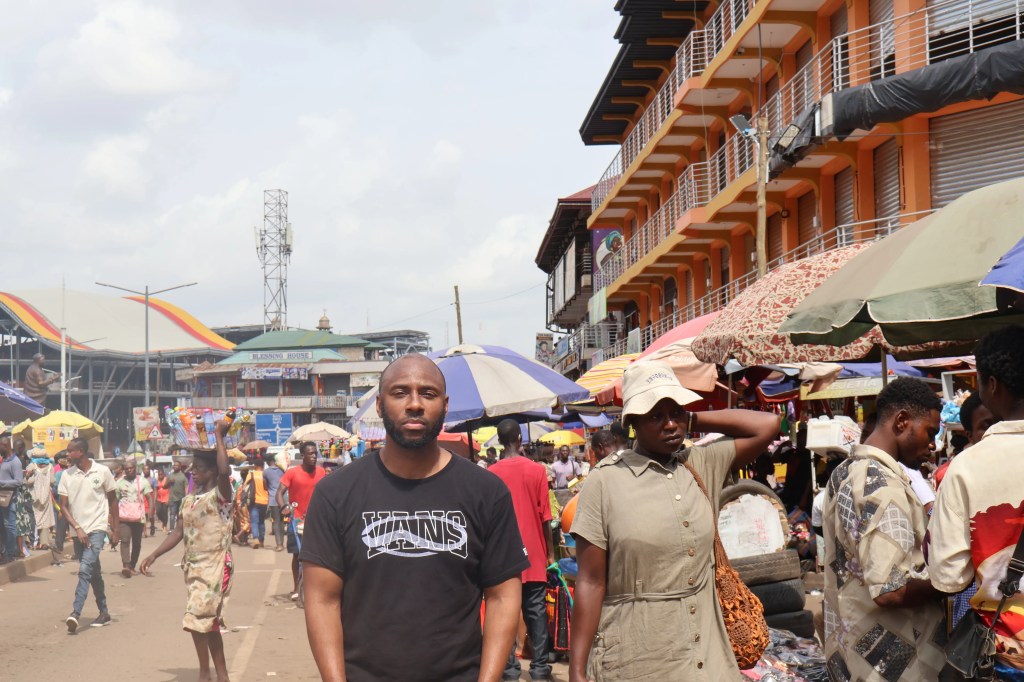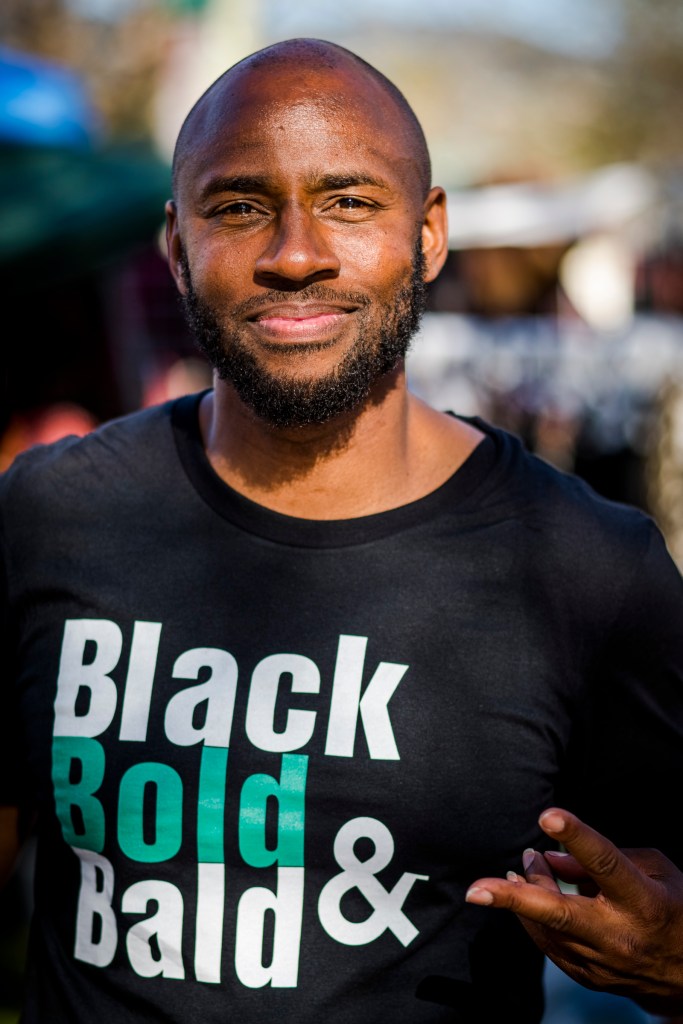
Ghana feels like the whole sun. It looks like a whole tree. And it tastes like a whole cake.
At some point when I was there I realized that I had only been given pieces of what’s essential to my being, and I had made the best of it, but in the pit of my soul I felt like I deserved more. I always thought that there was something else. Well at the market place outside of Kumasi in the Ashanti region–I experienced that something else.
There were probably no less than 10,000 people shopping for everything from cow heads, to backpacks, to ice cream. There was a buzz both inside and outside of the mall that felt like downtown New York City at 2:00pm in the middle of July.
There were men getting haircuts, women getting weaves, teenagers getting new cases for their cell phones, hundreds of babies being carried on the backs of mothers who were vending and mothers who were shopping as well. And all of them. 100% of them, were Black. It was very overwhelming for me, a Black man from a city that is 25% Black, from a country that is 13% Black, and a state that is only 6% Black.
As I sunk further into my thoughts and began to be less verbal with my tour guide, a mighty revelation began to bubble over the cauldron of my being: I AM NOT A MINORITY. I am not a tree without roots, I am not lost in the wilderness of North America. I am not living in a small ghetto allowing the dominant class to define what it means to be me. I am a drop of water in a beautiful black sea. I am being baptized and cleansed from a lifetime of geographic limitations. I am not relegated to a neighborhood, or a part of town. The entire world is mine. I may travel as I please, I may think as I please, I may do as I please. I am not a part, I am whole. I represent one whole mind, one whole body, and one whole soul, working together to liberate my sullied perception of my place in the universe.
